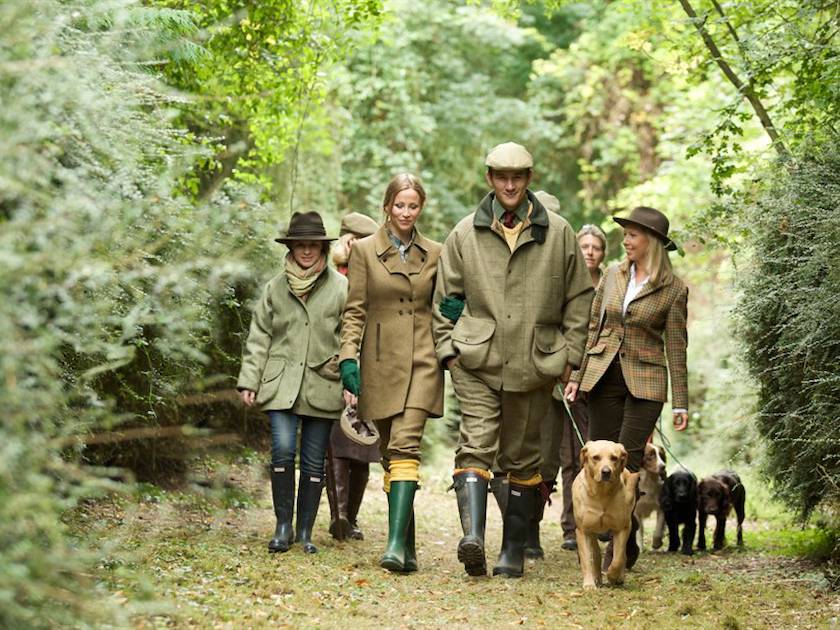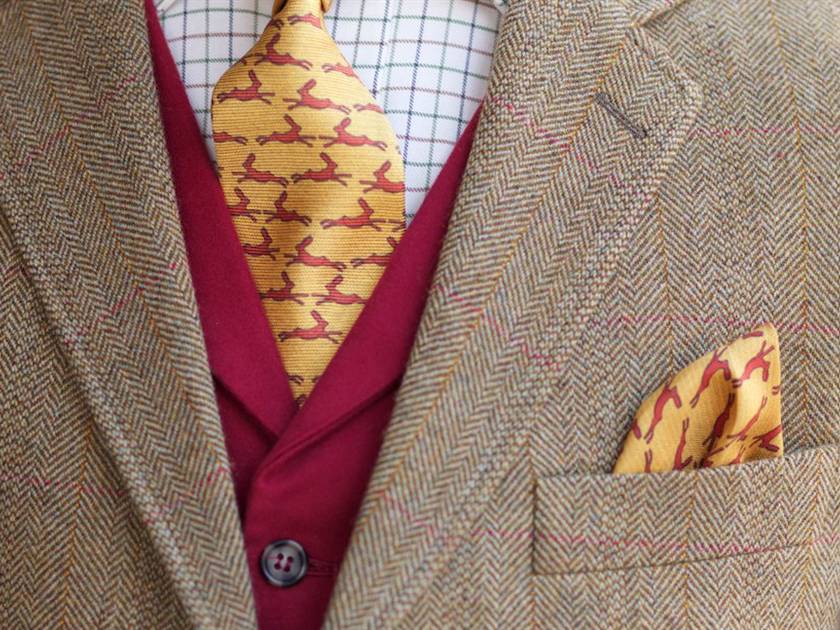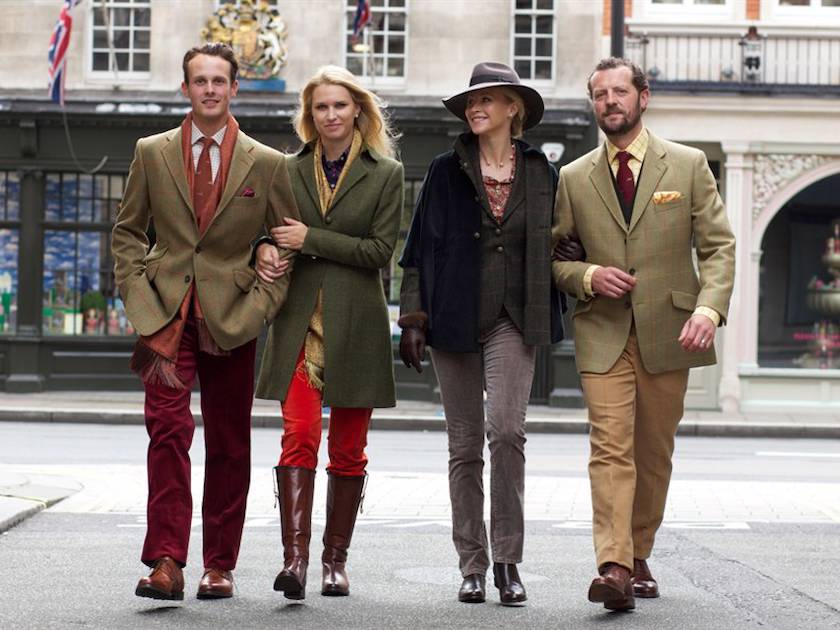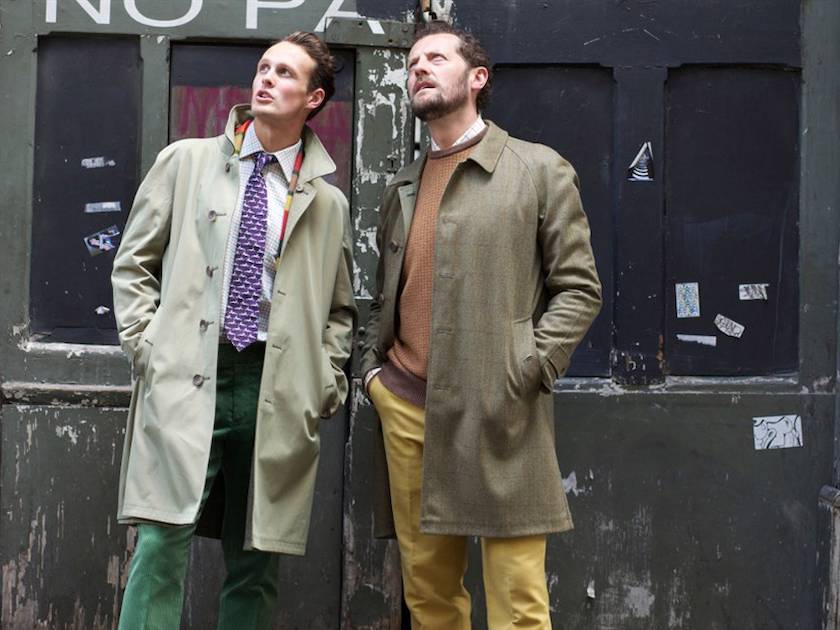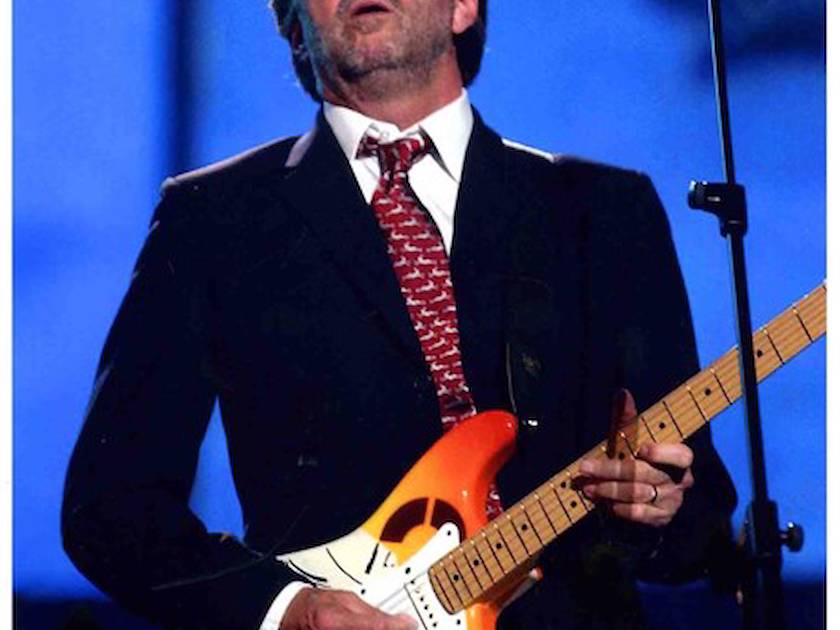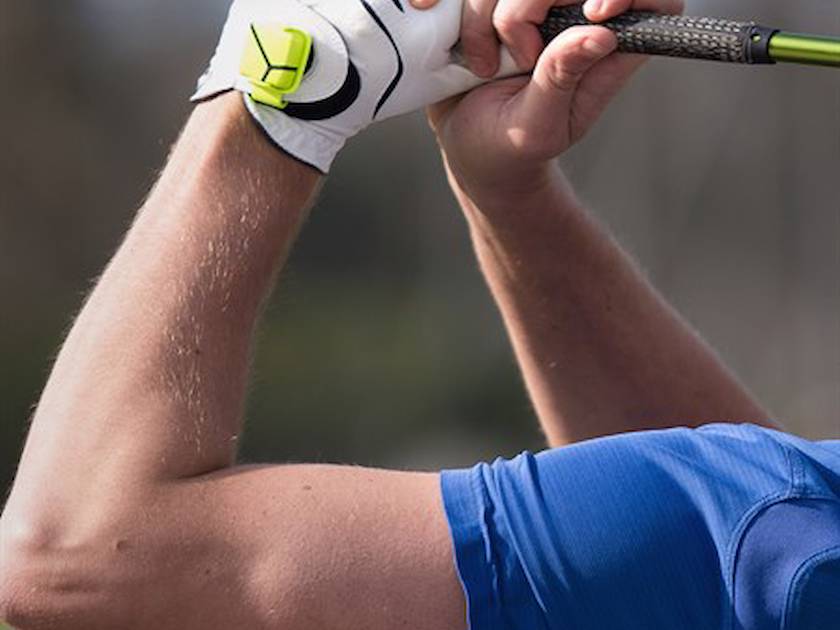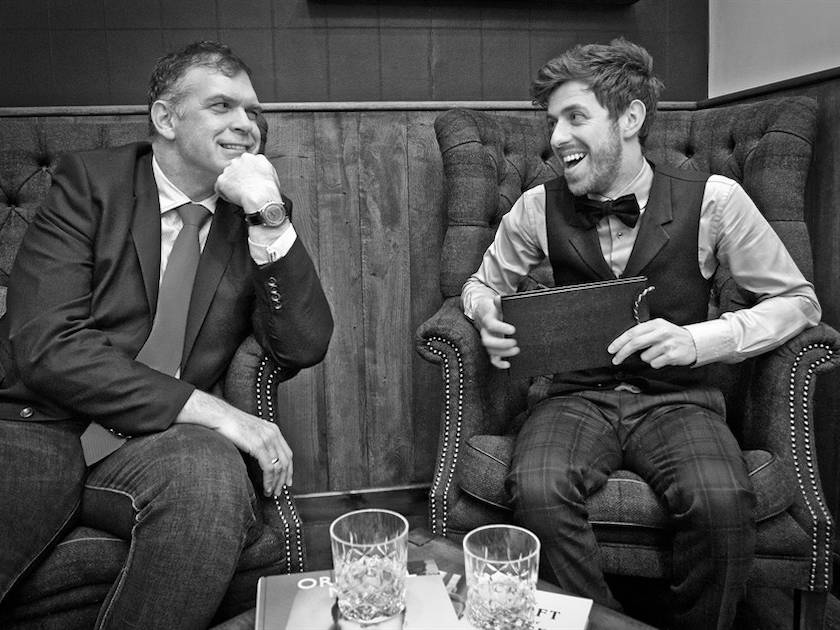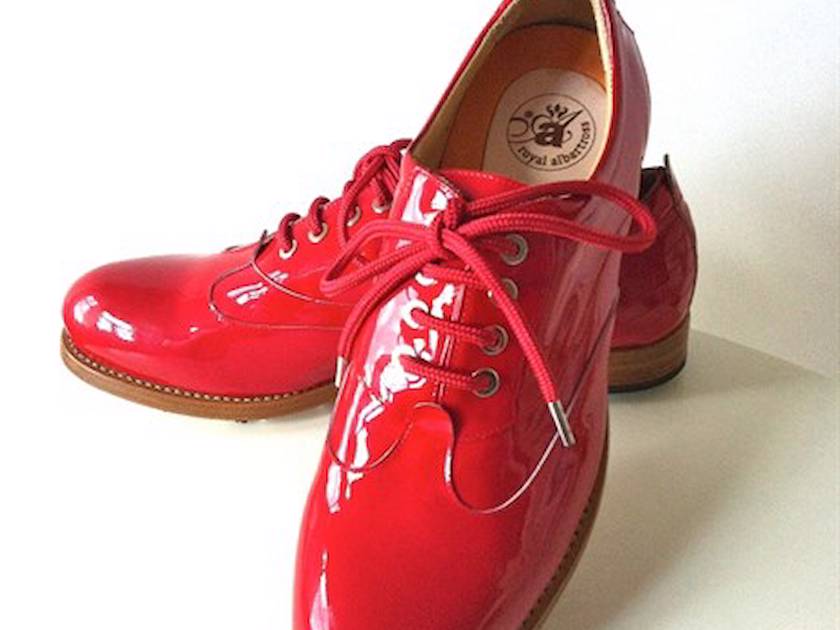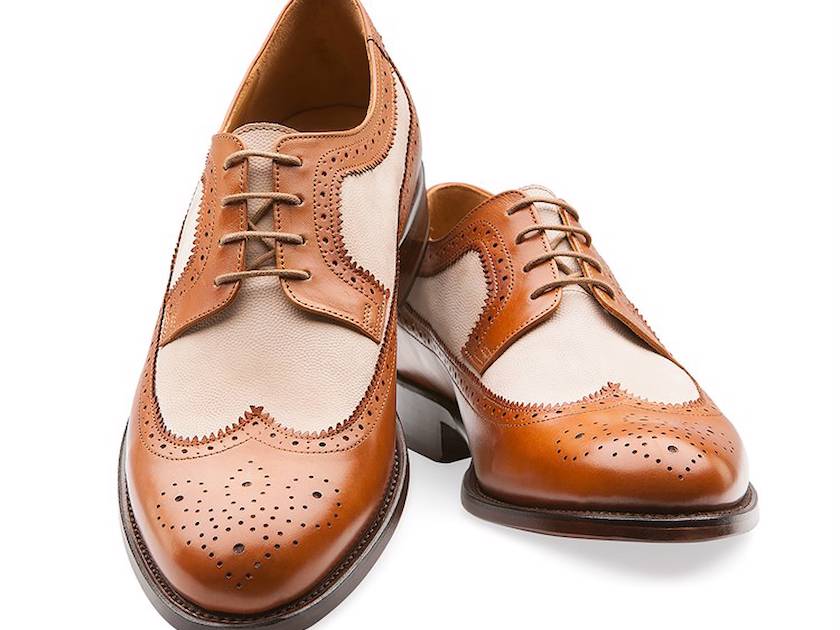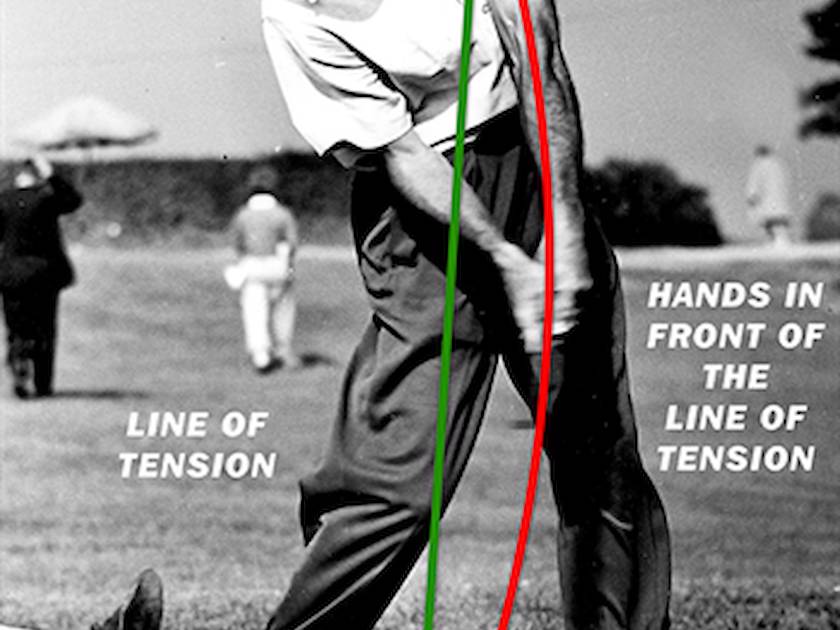Cordings - Renowned Country Outfitters
Everyone knows that it’s in to be a British brand these days. The Chinese know it, the Americans know it, hell, even we know it. So what exactly makes a particular brand famously British?
Not every product that has its roots upon the shores of Albion meets the criteria. Some, by the incorporation of the Union Jack on the label make a bold statement. But then there are others that are just so British that it’s unthinkable to imagine them as anything else. Cordings is in this exclusive group, and then some.
SINCE 1839. Mr John Charles Cording, founder and namesake, opened for business at 231 the Strand in 1839. That same year, William Fox Talbot invented modern photography and Charles Dickens published Nicholas Nickleby. His company would go on to receive the royal warrant, as waterproofers to the Prince of Wales and future King George V.
An advertisement from 1860 refers to the company as "nautical and sporting waterproofers and tailors" and goes on to list such items as "the new dreadnought coat—warranted to resist the effects of any climate" and "sheet India rubber fishing boots".
It’s no surprise then that in 1871, Sir Henry Morton Stanley was kitted out by Cordings in preparation for his famous journey to find Dr Livingstone. Cordings was synonymous with outdoor living and became an important port of call for gentlemen prior to venturing into the countryside. In 1877, the business transferred to its present location at 19 Piccadilly.
19 PICCADILLY. I arrive at Cordings at 1pm prompt on a rather chilly day in September -- exactly the weather in which to wear one of their tweeds and a waterproof. The location and entrance really say it all: this is a store with pedigree and heritage but also, as I am soon to find out, a welcoming and guiding hand for those of us unfamiliar with the clothing and brand. While I wait for my meeting, I peruse the garments on display and I am instantly drawn to an array of rather nice looking tweed jackets. You don’t have to be an expert on fabrics to recognise quality, and you only have to feel any of the garments to know instantly that they are special. There is a reason why a Cordings jacket or coat may end up being passed down a generation or two: they are made to last!Managing Director Noll Uloth appears from his office and greets me warmly, a well-spoken and thoroughly English gentleman wearing a Cordings shirt and trousers, naturally. I have to say that I am slightly thrown by his name; I had expected someone of German origin. “No, not German at all,” says Noll. “The name Uloth is Old Saxon, and apparently means Son of Wolf.” Well, you cannot get more British than that!We settle ourselves down in his office and it’s apparent after only a few minutes that this is a man with a story to tell, one that is intrinsically tied up with Cordings. In fact, you may say that his life was on a direct trajectory toward this place. Fate, destiny, call it what you will, but in all honesty there probably would be no Cordings today if it had not been for Noll.
LIFE OF NOLL. Noll has had a varied and interesting career, starting his journey through life by enrolling at Sandhurst Military Academy and joining the army for six years. “These were the days of full-page adverts enticing young people in, and being someone who had no idea what I wanted to do, it seemed a good option, at least to defer any real decision for a little longer. “After leaving the military, I joined a manufacturing company in the Midlands as Production Director, making products allied to the building industry. I thoroughly enjoyed this until the recession of the 80’s came along. I was forced to make people redundant, not something that anyone enjoys. From there I progressed on to a mail-order clothing business until it eventually closed and I was given my marching orders. But then one of our suppliers told me that Cordings was on the lookout for someone with my experience and background..”
HARD TIMES. By that time, the company was no longer owned by the Cordings, who had sold out in the 1950’s. The business was struggling and had fallen on stony ground. The owners were not particularly involved, there was no one to answer the phone and the shop was in a state of disrepair. In fact, the company was teetering on the edge of bankruptcy. “I went to the owners and told them that if they did not do something soon, the company was going to fold. They took my advice and agreed to look for a buyer,” says Noll.“Initially, there was a lot of interest from some big players, including Ralph Lauren. Every time a deal looked to be in the offing, the skeletons would fall out of the cupboard, namely no rent paid for over a year and no money in the bank. By the time Christmas came around, no buyer had materialised and things were looking decidedly bleak. So, after a great deal of deliberation and many long conversations with my wife, I announced that I would buy the company -- but I needed to, as they say, phone a friend first. I was given a week to come up with a way to move forward.”
ERIC “SLOWHAND” CLAPTON. Noll’s planned phone call was to one of Cordings' best customers, none other than the musician Eric Clapton. Eric had been aware of Cordings since his teenage years, and he would often pass the shop late at night after leaving a music club and peer in through the window. Many years later, he was walking past the shop and a particular garment caught his eye: a three piece, moss green, herringbone tweed suit. “The jacket seemed to be just the most exquisitely cut that I had ever seen,” says Eric. “I plucked up the nerve to go in and tried it on. The suit was immaculate. It was stormproof, and it was just the most well-made suit that I had ever worn, and I had to have it. Before I knew it, I was coming in to the shop every week.”
THE MEETING. Noll rang Eric’s office and (after an initial response from his secretary of, “What do you want, money?”) he managed to get his intentions across. Eric would come to see him at 10am the next morning. “Eric is a busy man and constantly touring the world,” says Noll, “so it was fortuitous that he was available. As it turned out, all his children went down with flu that day and the meeting was postponed until the following Monday. When Eric turned up, I had my speech prepared with all my points about why it would be good for him to be involved and so forth. About two minutes into my presentation, he stopped me. My heart sank, but to my relief he announced that he would do it. He never did hear the other 17 minutes of my pitch! So, Eric came in and gave us the funding to put the company back on its feet and move forwards. We both had the same vision, which was to concentrate on its strengths, the areas and products on which Cordings built its reputation, to rebuild the brand.
RE-ESTABLISH PRODUCTS. The true Cordings had a very unique place in the market. It knew what it did, and it did it well. The most important job for Noll and his new partner was to re-establish the products which the brand was known for. During previous years, various owners had tried to change the model, and in so doing, they had removed the essence of what Cordings was. “Our clothes are functional,” says Noll, “and it’s important that we are making things properly. Our fabric is of the highest quality, for example. All our tweed comes from England and the borders. It has a certain feel you just cannot find anywhere else, and this is our approach to all of our garments. Our clothing has functionality. Whether it’s jackets with buttons for keeping a pocket open or shirts that are made longer so they stay tucked in, it’s all about functionality.“Our range is based on the five Cordings core products: fitted tweed jackets, covert coats, rubberised mackintoshes, corduroy and moleskins, and tattersall shirts. Everything else comes from this. We have overcoats because we sell covert coats, we sell cotton raincoats because we sell rubberised mackintoshes, and because we sell tattersall shirts, we also sell checked shirts. From within those core products we build our range. If demand calls for a particular pattern or colour, we work within these boundaries.”
OVERSEAS MARKET. But it’s not just the British who buy from Cordings, they have built up a following in America, Scandinavia, France, and Italy to name just a few. 40% of their stock now goes overseas, and who can blame anyone for wanting a truly authentic British product?
“We now have a solid women's collection,” says Noll. “This was born out of the demand from women who came into the store with their husbands and partners. They saw the huge array of tweed on offer for men and started requesting clothing made for women as well.”
Ten years ago, Cordings was a flickering flame of past glory and forgotten quality, close to being extinguished forever. But given a chance, quality will always survive and it seems certain that this is the level to which many others shall now aspire. Noll and Eric's achievement has been driven by a true love for and belief in the brand's core values. I have a distinct feeling that Cordings could very well still be here in another 176 years.
CORDINGS
Address - 19 Piccadilly, London W1J 0LA
Telephone - 020 7734 0830
Website - www.cordings.co.uk
